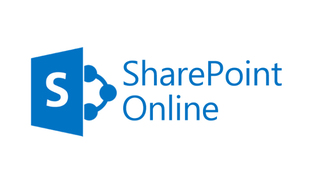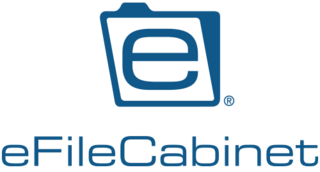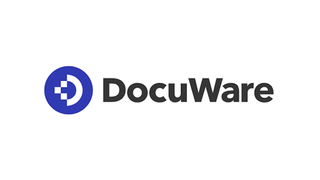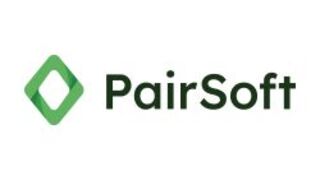Best Document Management Software
No one wants to spend hours poring over manila file folders and rustling through old tin can filing cabinets. Save time, the environment and your lumbar region with a document management software system.
And no, the shared folders on your LAN system don't count. Neither does Google Drive. A document management software system is much, much more powerful than these. Think of it like this: If Google Drive is a 1980 Ford Pinto, then modern document management software systems are a 2022 Tesla Model S.
In this handy review guide, we've picked out five of the best document management software systems on the market today. Continue reading to learn about their key features, strengths, weaknesses and other unique selling points.
Our Top Picks For Best Document Management Software
- Hightail Business — Best For Creative Content
- Microsoft SharePoint Online — Best For Workflow Automation
- eFileCabinet Online — Best User Interface
- DocuWare Cloud — Best For Seamless Integrations
- PairSoft — Best For Unlimited Storage
Best Document Management Software Reviews
Why we chose it: Hightail Business has positioned itself as the go-to option for businesses operating in the creative industry.
Before we go any further, it's important to point out that Hightail Business isn't the greatest option for most regular businesses. Its heavy emphasis on companies with creative needs means you won't find equally robust sorting or automation tools compared to heavy-hitting competitors like Microsoft SharePoint Online (our next pick).
However, if you work in graphic design, advertising or the media, Hightail's rich feature set should align pretty neatly with your day-to-day work. For example, client collaboration and side-by-side version comparison functions make it easy to debate the finer points of your latest revisions.
Hightail offers a free plan and three paid plans ranging from $12 to $36 per user per month: Pro, Teams and Business. It also offers a discount when you choose the annual payment option.
You should probably go with either the Teams or Business option. Yes, you'll shell out a bit more than you would for the free or Pro plan, but with Hightail Business, the old adage that you get what you pay for rings true. Most of the features worth having are only available on the highest-priced plans. For example, the Business plan is the only package to offer enterprise-grade security measures. Fortunately, even the priciest tiers aren't that expensive compared to the competition.
All paid plans come with unlimited storage, plus Adobe Photoshop and Illustrator plugins. The Business plan lets users send files of up to 500 gigabytes (GB). Teams and Business plan holders gain access to custom branding, e-signature gathering, Microsoft Outlook integration, reporting and analytics, priority support and more.
Paid plan holders get access to live chat and phone support. If you opt for the most expensive tier, you'll even get your own dedicated customer support team.
Unfortunately, Hightail Business lacks robust enterprise-level document management features. It also comes with limited support for traditional documents, making it a poor fit for companies that haven't shed their paper record-keeping ecosystem yet.
Why we chose it: Microsoft SharePoint online comes with over 100 automation templates. In addition, you can customize the program to automate away any issues not covered by the Power Automate library.
Microsoft SharePoint wins out for its expansive feature set. If you can imagine a document management function, Microsoft SharePoint probably has it. All of that power comes with a price, however. The setup process alone can feel overwhelming, and that's to say nothing of the time and energy necessary to master its many applications.
However, when it comes to document management services for enterprise-level businesses, the robust security, workflow templates, collaboration, filing and sorting features make it worthwhile.
Unlike many of its competitors, SharePoint prices its plans by the user. You can choose from three different plan options starting at the affordably priced SharePoint Online Plan One for $5 a month per user all the way up to the Office 365 E3 for $23 a month per user. All plans come with 24/7 phone and web support. In addition, some of the higher-tier plans come with unlimited cloud storage.
As expected, SharePoint integrates well with the full suite of Microsoft software applications. Considering the dominant position the Microsoft Office suite still holds in the business world, this may present a strong selling point for some customers. SharePoint also integrates with a range of third-party software tools, including heavy-hitters like Salesforce, Slack, DocuSign and Adobe Sign.
Why we chose it: eFileCabinet Online's clean and minimalistic user interface sets it apart from the competition.
Helpful prompts and navigation pop-ups enhance eFileCabinet's already simple navigation features. It has a clear sidebar tool that presents users with different categories to click through. Unfortunately, it doesn't offer an online editing tool.
Currently, the eFileCabinet Online website invites users to submit their personal and company information to get in touch with a sales representative. This added step represents both a hindrance and a possible silver lining since prospective customers gain access to personal service right off the bat.
Based on current and past user data, eFileCabinent Online's pricing seems to align with the industry average. Plans range from $699 per user per year to $2399 per user per year.
Alongside its standout user interface, eFileCabinet Online offers robust cybersecurity and regulatory compliance measures and a fairly expansive range of standard and advanced features, including:
- Smart automation tools
- Workflow templates
- Collaboration tools
- eSignature capabilities
- A desktop app
- A missing item search function
At present, eFileCabinet Online doesn't offer an unlimited storage plan. However, it comes close with 20 terabytes (TB) of storage on its Enterprise level plan. Its other two plans, Ignite and Growth, offer 1 TB and 5 TB, respectively.
Ignite offers five custom folders, while Growth comes with 50. The Enterprise plan lets users create unlimited custom folders. You can try eFileCabinet without charge with its 30-day free trial.
If you run into an issue, you can get in touch with a customer support specialist 24/7 via online chat, email or phone.
Why we chose it: With more than 500 applications and a notably smooth integration process, DocuWare Cloud stands out as our top pick for seamless integrations.
DocuWare presents its users with a clean and easy-to-navigate user interface design. The learning curve on this product is not steep, although, as with all of the items on our list, the more you put into it, the more you get out.
All of DocuWare's plans come with a solid range of standard document management features, such as version control and some smart automation.
Its AI-powered automatic sorting and filing features take more of the load off your back. Take advantage of its advanced lookup tools for easy document retrieval.
You can choose from one of four plan options: Base, Pro, Enterprise and Large Enterprise. Each plan comes with all available product features. Only the maximum number of users and storage capacity differs, with the Base plan supporting up to four users with 20 GB of storage while the Large Enterprise plan works with up to 100 users and 250 GB of storage.
If you run into a problem, DocuWare maintains a robust customer support ecosystem consisting of user forums and how-to guides. You also have the option of contacting customer support through your support portal Monday through Friday at any time of day or night. Drawbacks to the service include its relatively high price point and low storage capacity.
To get a better idea of what plan works for you, DocuWare invites prospective customers to request a free demo through its website. You must also contact a representative to get a custom quote. The lack of transparency may leave some people frustrated.
Although DocuWare is accessible on most major operating systems, its desktop app is limited to Windows. You have to access DocuWare through a browser on devices running Mac, Linux and Chrome OS.
Why we chose it: PairSoft provides all its users with unlimited storage capacity. Its website promises you'll never be charged an overage penalty or price surge based on storage.
PairSoft's document management system is just one part of its complete business management software suite. Other services include fundraising automation, accounts payable automation, analytics and reporting, procurement and electronic payment management.
You have to submit an online form to request a custom quote. However, the website promises that you'll only be charged for what you use. In other words, you should be able to request the document management system à la carte or in conjunction with just one or two of the company's other services.
PairSoft integrates with several third-party software services, such as Microsoft 365 and NetSuite. Its listed features are standard for document management software and broadly encompass efficiency, cybersecurity and compliance enhancements. One area where PairSoft stands out is its allowance for unlimited users.
For those in need of support, PairSoft lets you file a ticket through its online system. Be warned, though — reviewers on multiple platforms complain about the speed of its customer service. You can deal with less serious matters through its virtual user library.
Other Document Management Software We Considered
We evaluated each document management software system according to its pricing, ease of use, range of features, storage space, integration capabilities and customer support. The following companies offer quality services. However, they failed to make our list due to deficiencies in one or more of our assessed areas.
PaperTracer
PaperTracer stands out for its strong security and compliance features. However, it failed to make our list due to its weak collaboration tools and technical limitations.
Fluix
Fluix offers its users strong cloud storage features and an easy workflow setup. However, its lack of functionality outside the Apple OS system, sparse enterprise-level features and above-average prices make it a no-go for our main list.
Adobe Document Cloud Standard
Adobe Document Cloud Standard stands out for its strong integrations with the Adobe software suite. While it offers a great deal of functionality when it comes to PDFs, it comes up short with most other file types. In addition, its tepid collaboration tools make it a non-starter for most businesses.
Document Management Software Guide
We've put together this handy guide to help you understand the ins and outs of document management software. Continue reading to learn everything you need to know to pick the right software system for your organization.
What Is Document Management Software?
Document management software lets organizations electronically file and sort a range of different document types. While it's commonly thought of as pertaining solely to PDF and Microsoft Word files, document management software also encompasses spreadsheets, photos, videos and more. Virtually any electronic file that has business implications can make its way into a document management software system.
You're probably familiar with consumer-oriented cloud-based document storage systems like Google Drive or Microsoft 365. While these provide solid functionality for personal use and may prove suitable for very small businesses, they're not well-suited for most companies. Businesses require more robust and feature-rich software tools for security purposes and to enhance workplace efficiency.
While document management software has increasingly moved onto the cloud, some businesses continue to use on-premise software. Security and privacy concerns have traditionally been cited as a reason for favoring on-premise software over cloud-based storage. However, this may no longer be true. Leading cloud document management software providers provide security measures on par with Fortune 500 company requirements.
Document management software goes well beyond data storage. Advanced filing, retrieval and lookup features cut down on time wasted manually sorting and searching for paper documents or electronic files hosted on a less sophisticated system. Many software systems come equipped with various automation features.
For example, it may automatically lift text from a scanned document and convert it into a .doc file using optical character recognition (OCR) technology. The system can scan the document for keywords and automatically file it based on that information.
Other automation tools, such as e-signature tracking, can track who has signed a document. Automatic push notifications can be sent out to nonsigners, and the system can notify the document owner when it's completed.
How Does Document Management Software Work?
Document management software uploads electronic documents into a central repository, where they're sorted into various categories. Metadata is attached to each document containing important information like the author's name, upload date and a short document summary. This information makes retrieval easier. It also assists with creating an audit trail.
For heavily regulated industries, such as the finance and legal industries, detailed information is a vital component of document storage. Enabling detailed version controls which allow users to view a document's change history may be necessary for regulatory compliance purposes.
Many document management software systems rely on military-grade security measures. You might be asked to undergo two-factor authorization as part of the login process. Encryption technology and HTTPS protocols also help to keep digital documents safe from data breaches and malicious actors. Many systems come with detailed permission settings to allow a granular level of control over who can access what documents and where.
Key Features To Look For In Document Management Software
When shopping for a document management software system, you should take each of the following factors into consideration.
Ample Storage
It's important to select a subscription model that fits your business's storage needs. The document management software market includes capped and uncapped plans. If you choose a capped plan, make sure that it has higher plan levels for your business to grow into. While you may not need all of the data your plan offers today, there's no telling where you'll be five years from now.
Some plans with hard limits are virtually identical to unlimited data storage plans. For example, eFileCabinet Online's highest pricing tier grants plan holders access to up to 20 TB of storage.
You should check the fine print on any plan offering unlimited data storage. For example, some unlimited storage plans exclude video files.
Collaboration Tools
Collaboration tools enhance workplace efficiency by allowing multiple people to work on a single document from different locations. This eliminates the time-consuming process of passing documents back and forth. It also reduces confusion by giving all parties access to the most up-to-date version of the document.
Certain tools like e-signature gatherers can slash the time spent on routine processes. Simply send an email containing an invitation link to the relevant document and watch the signatures come rolling in from the comfort of your office.
Other tools let you work on the same project together in real time or in quick succession. Automatic saving tools ensure that all users are working on the latest and most up-to-date copy.
Version Control
Advanced version controls go a long way in the creative and compliance fields. Anyone who's worked in graphic design knows that sometimes the first draft is the best draft. Version controls let you go back and pluck out past saved copies of a document.
This tool also lets you see who made what changes and when the changes were implemented. Not only does it help users make sense of a document featuring multiple collaborators, but it's practically a necessity for compliance and auditing purposes.
Some systems also let you create sub-documents from past versions. This branching software allows for multiple iterations of the same document.
Automation Features
Automation features help eliminate or reduce routine tasks freeing you up for more interesting and higher value-added work. As if that wasn't reason enough to embrace our future robot overlords, automation features also make fewer errors than their human counterparts. That's especially true for mind-numbing tasks like data entry and data extraction.
Many automation tools deal with scanning and classifying documents by type or information. Automated sorting tools enable AI-powered systems to zip through email attachments and download and sort them without user assistance. Other tools rummage through document depositories and pull out relevant data to be sorted and input into other business documents or systems.
Third-Party Integrations
Get the most from your document management software system with third-party software integrations.
Streamline workflows and enhance efficiency by merging your document repository with your:
- Enterprise resource planning (ERP) software
- Customer relationship management (CRM) software
- Project management tools
- E-signature gathering system
Third-party integrations allow you to store, retrieve and edit all your documents and information. For example, an ERP integration lets businesses streamline accounting functions by making it easier to file and look up invoices, receipts and purchase orders. A CRM integration effectively transforms your CRM software into a single source of truth for all customer-related information.
Security And Privacy
Strong security protocols are necessary for businesses of all types. Whether you have to ensure regulatory compliance or are worried about leaking trade secrets, keeping your information safe from hackers and data breaches should be a top concern for every company. The leading document management software companies offer military-grade cybersecurity measures.
Look out for a program that promises:
- Encryption technology
- Audit trails
- Anti-virus software
- Automated back-up systems
- Two-factor authentication
How We Chose The Best Document Management Software
We evaluated each of the choices on our list according to the following criteria.
- Pricing: We weighed the cost of each software system against the features offered.
- Ease of use: We assessed each software system by the steepness of its learning curve.
- Range of features: We looked at the full range of helpful features offered by each system, such as document organization and sorting, cybersecurity and version control.
- Storage space: We favored software systems that provide large or unlimited storage space.
- Integration capabilities: We rated each system by its ability to integrate with popular third-party software systems.
- Customer support: We appraised each software package by its level and quality of customer support services.




